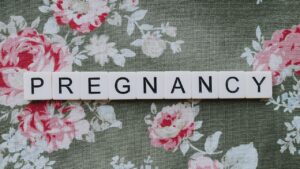When you’re newly pregnant, the first trimester can feel like a whirlwind of emotions, exhaustion, and excitement. You’re bombarded with advice from every corner, from what to eat to what to avoid, but what if there’s a warning sign lurking beneath the surface that most doctors tend to overlook?
While morning sickness, fatigue, and mood swings steal the spotlight, there’s one sneaky little symptom that often gets brushed aside: persistent, intense thirst. Yep, that unquenchable craving for water could be your body waving a red flag, and it’s not just about needing a bigger water bottle.
Excessive thirst, known as polydipsia, might seem harmless at first. After all, your body is working overtime creating a brand new human—of course you’re going to need more hydration, right? But when that thirst becomes relentless, leaving you chugging glass after glass without relief, it could signal something more serious like gestational diabetes or early-onset preeclampsia.
Gestational diabetes is usually tested for later in pregnancy, around the 24th to 28th week, but some women start showing signs much earlier without realizing it. Persistent thirst can be an early indicator that your blood sugar levels are higher than they should be. Pair that thirst with frequent trips to the bathroom, dizziness, or unexplained fatigue, and it’s time to raise an eyebrow.
On the flip side, preeclampsia—a potentially dangerous condition characterized by high blood pressure—can also sneak in quietly during the first trimester. One of its lesser-known early warning signs is excessive thirst, often accompanied by headaches, swelling, or blurry vision.
The tricky part? Many doctors brush off extreme thirst as just another pregnancy quirk, especially if your routine lab work looks normal. But you know your body better than anyone else. If something feels off, trust that instinct and speak up—loudly, if you have to.
The best way to advocate for yourself is to track your symptoms. Keep a little journal noting how much water you’re drinking, how often you’re running to the bathroom, and any other unusual changes you notice. If that thirst is keeping you up at night or making you feel like you’re never fully hydrated, bring those notes to your next appointment.
The good news is that both gestational diabetes and preeclampsia can be managed if caught early. Small lifestyle changes like tweaking your diet, managing stress, and staying active can make a huge difference in your overall pregnancy health.
Pregnancy is one of the most transformative journeys your body will ever go through, but it doesn’t come with a one-size-fits-all manual. While doctors do their best to monitor your health, they can’t always catch every symptom—especially the ones that seem minor at first glance. That’s why listening to your own body and advocating for your well-being is one of the most powerful things you can do for both yourself and your baby.
So, if that water bottle is practically glued to your hand and no amount of H2O seems to quench your thirst, don’t just chalk it up to pregnancy quirks. Speak up, ask questions, and remember—you’re not just growing a little human, you’re becoming your own best health advocate too.








